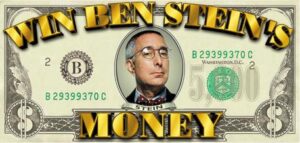Does Investing in Art Pay Off?

Many high-net-worth individuals have a strong interest in investing outside of the usual stock market. There are all kinds of things people can invest in, including luxury cars, real estate, horses, jewelry and of course artwork. The artwork is one of the most common collection items that the wealthy invest in and many high-net-worth individuals have increased their net worth through prudent investments in art. However, investing in the artwork is not cut and dry. It doesn’t always prove fruitful and there are arguments both for and against this endeavor.
Are the Return Numbers Actually Inflated?
In fact, according to a study released earlier this year, investing in the art may not be nearly as lucrative as those in the industry have led us to believe. In June of this year the Luxembourg School of Finance at the University of Luxembourg released the findings from research it did on the returns of fine art. That research indicated that even though the Index of Fine Art Sales has shown a 10 percent yearly average return on all art investments over the last 40 years, those numbers are in fact not nearly that high. Based on their research, which was taken from the Blouin Art Sales Index, which is the most complete auction database available, the actual average return from 1960 to 2013 was only 6.3 percent. The researchers also concluded that the mere fact of holding an art fund in an investment portfolio does not improve the likelihood that a given portfolio will outperform.
More Risk Investing in Art?
There is another possible downside for those considering investing in art. Based on the information gathered from the Blouin Art Sales Index, the researchers calculated a score of 0.11 on the Sharpe Ratio, which is used to calculate the risk-adjusted return. The previous value that had been reported was 0.27, which is much more favorable because the higher the value of the Sharpe Ratio the better the risk-adjusted return.
Why the Discrepancy?
So how are the estimated numbers from the art investing industry so far apart from the actual results? The researchers say the main cause is that investors and dealers have been guilty of selection bias. This happens because paintings that are in high demand usually end up being auctioned off more often and they sell for a lot more money, which gives them an upward bias. In addition, art owners typically sell their paintings that have increased the most in value. These numbers are then incorrectly applied to the value of paintings that sell less frequently or that don’t sell at all.
Make Sure You Love it
Of course, there are many arguments both for and against investing in art. Some investors have had a lot of success, while many others have ended up on the wrong side of art investment. If you are considering investing in art, then one simple rule to live by is to always purchase something because you love it and you know you’ll be happy with it even if you never do sell it.
//phys.org/news/2016-06-invest-art-fine-overestimated.html
//www.huffingtonpost.com/artinfo/does-investing-in-art-make-sense_b_2663745.html
Why Taxing the Rich to Help the Poor Doesn’t Work
How many of you remember the Comedy Central game show: “Win Ben Stein’s Money?” The host, Mr. Stein, would challenge his opponents in answering trivia questions and actually give away his own money to those who beat him. That show has long been off the air, but the game show host, turned conservative commentator is…
Toshiba Adds More Units to Accounting Probe After Overstated Profits
Toshiba added more units to accounting probe after overstating their profits. Accounting can be much like taxes and when it comes to businesses the two go hand-in-hand. Getting your accounting right is extremely important. That’s why we recommend using a qualified accounting firm to handle your books. That includes: preparing financial statements, certifying audits, compilations…
Thieves Steal Confidential Taxpayer Info Via IRS Website
Just when you thought you were safe to access important and confidential information via the IRS website, it turns out scammers are at it again. According to reports from the IRS, thieves have managed to break into one of the government agency’s website services and steal the confidential information of thousands of taxpayers. In fact,…
SEC Penalizes Deutsche Bank for Questionable Accounting Issues
Accounting mistakes can happen to anyone, whether you’re self-employed, have a small business with just a few employees, or you run a major corporation. However, even when mistakes happen, the consequences can be damaging. When those mistakes, or irregularities, involve large organizations like corporations, banks and financial institutions the consequences can be severe. Recently, the…


